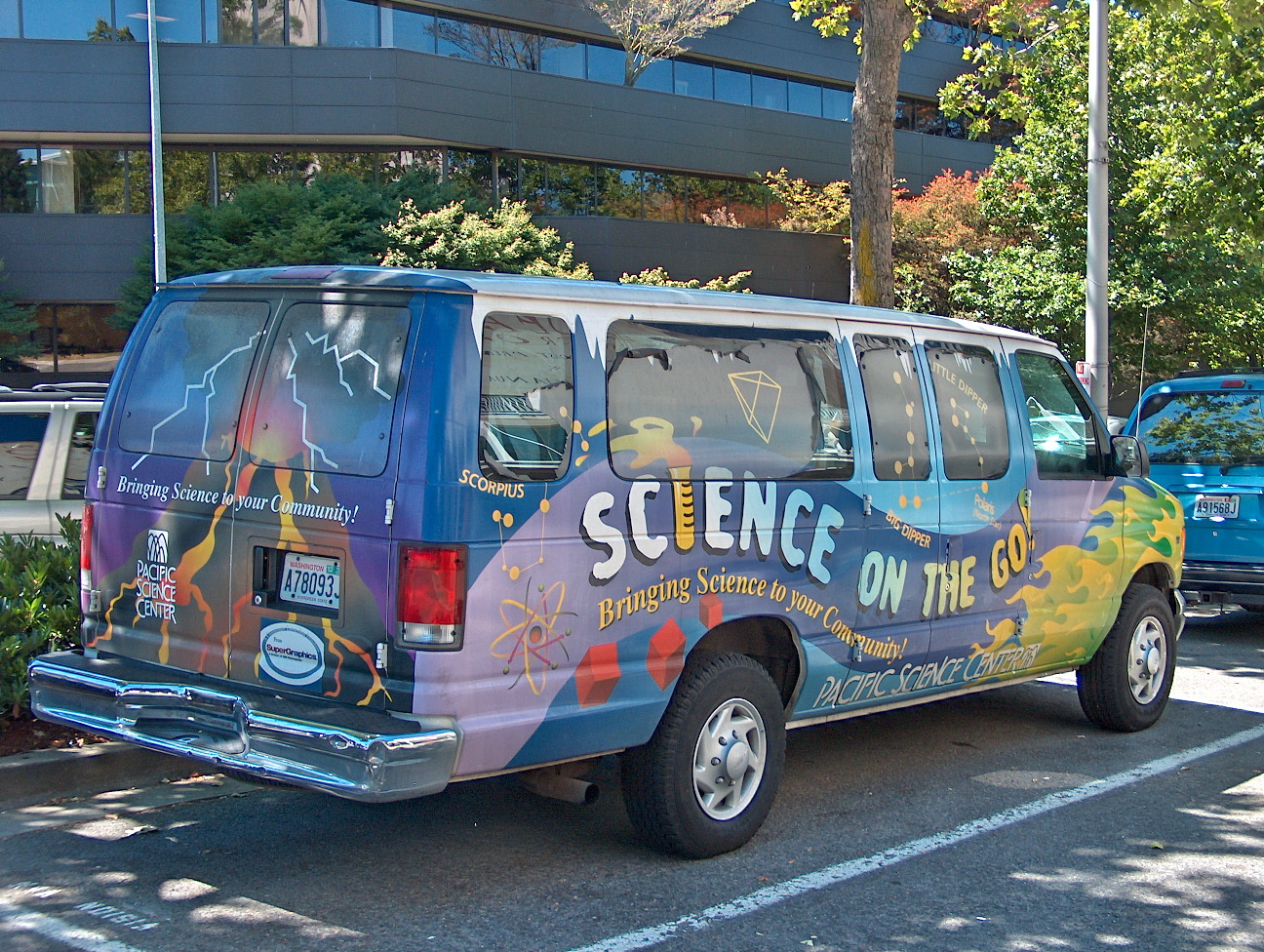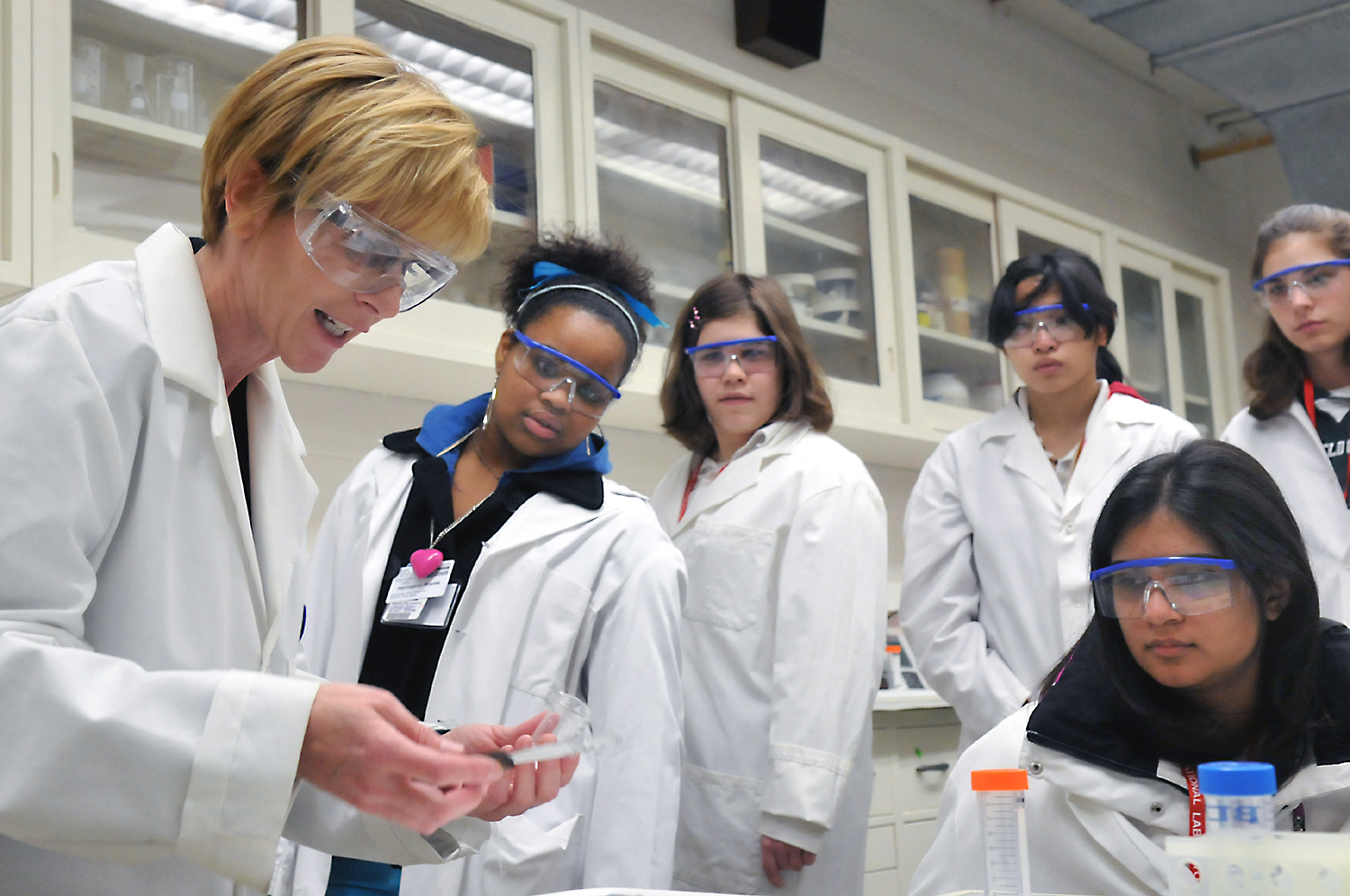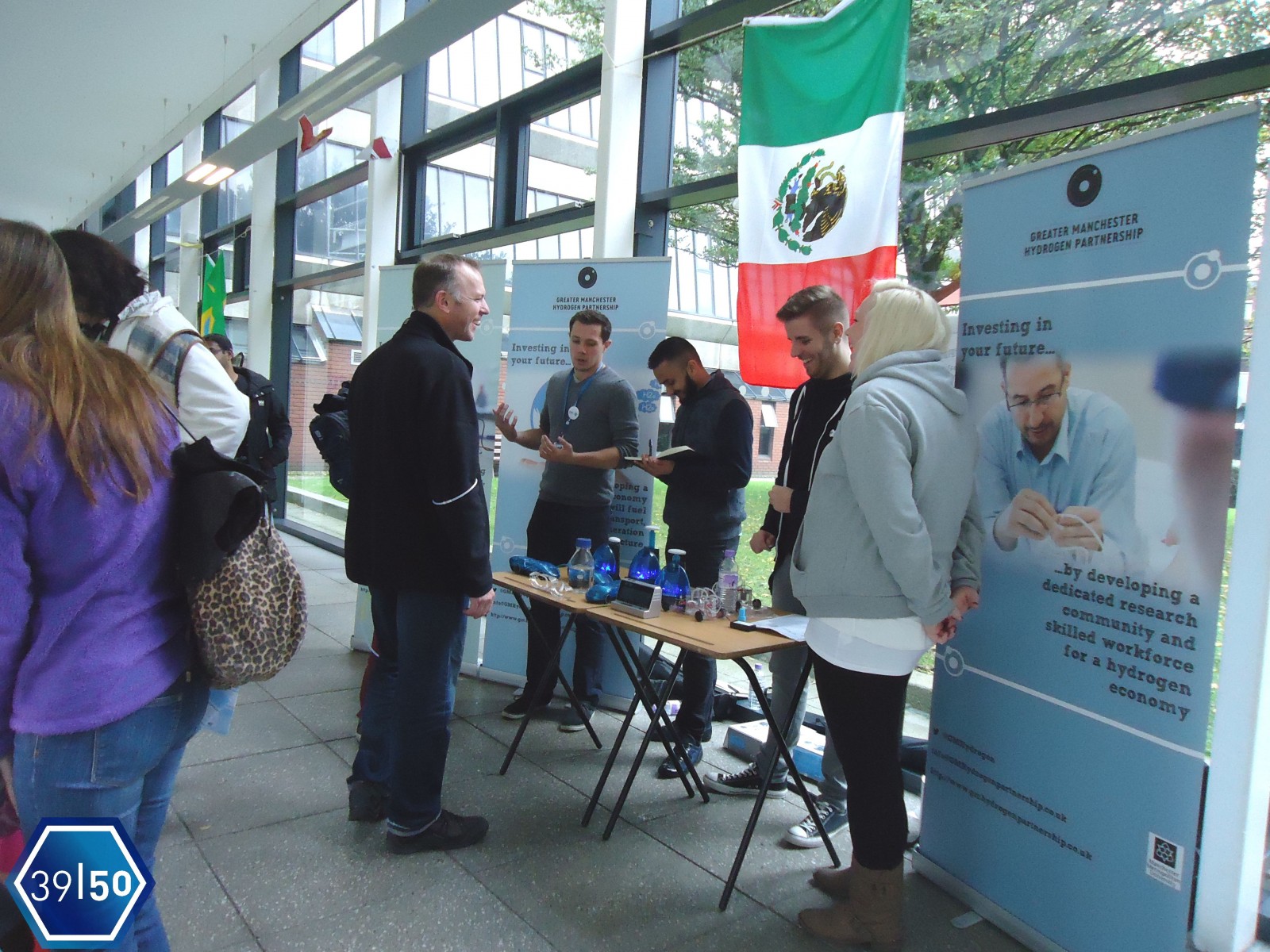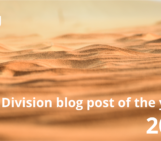
Van for Pacific Science Center school visits. Credit: Arthur Hu (Wiarthurhu) distributed via Wikipedia.com
In this guest blog post, Sam Illingworth, discusses the perceived differences between science education and science communication in light of a recent publication on this very subject. If you are involved in either of these, we’d love to hear your opinions on how you think they differ (if at all) and how the approach to engaging the public might differ too! We look forward to your comments.
The Journal of Research in Science Teaching recently published this extremely interesting special issue on Bridging Science Education and Science Communication Research. The issue is worth reading in its entirety, but it is a discussion of the editorial and some of the issues that are raised in it that I would like to discuss in this GeoEd post.
The editorial nicely frames the rationale behind the special issue; namely that whilst science education (sci-ed) and science communication (sci-comm) share some common goals, they have:
“Evolved as disparate academic fields where each pays little attention to the other.”
I will come back to the validity and necessity of this statement towards the end of this post, but in the meantime there are some really agreeable viewpoints and ideologies that I would like to share, as well as some issues that need further clarification.
In the editorial, the authors make reference to a White Paper by the European Commission, which states that:
“Ethical issues cannot be the subject of informed debate unless young people possess certain scientific awareness… Clearly this does not mean turning everyone into a scientific expert, but enabling them to fulfil an enlightened role in making choices which affect their environment.”
I liked this statement so much that I drew a little heart next to it in the left-hand margin. For me this sums up exactly what sci-ed, and indeed what sci-comm, should be about: we are not training everyone to be an academic researcher, but we should be providing them with the mindset to ask questions and ultimately to challenge dogmas and hypocrisies. These can be as banal as questioning the validity of your latest mobile telephone bill, or as significant as demanding to know why there still exists a gender pay gap. Learning to ask the right questions is the fundamental basis of being a good scientist, and it is this tangible asset that we should be passing on to the non-scientist.
In the editorial, the authors point out that academic research into sci-comm has been responsible for forcing the agenda in sci-ed, by demonstrating that people require more than simply the cold, hard facts of scientific knowledge to interpret the world. Although, as the authors point out it is ironic that this movement away from a deficit model to a more dialogue-based approach did in fact first occur in sci-ed, on a theoretical basis at least.
Interestingly, however, the notion that scientists are fallible does seem to be being communicated via sci-ed. For example, the Relevance of Science Education (ROSE) project found that the majority of 15-16 year old school children disagreed with the statements that “scientists always follow the scientific method that always leads them to the correct answers” and “we should always trust what scientists say.[1]” I wonder if the same can be said for sci-comm?
One of the issues that I have with this editorial is in the opening couple of paragraphs, where the authors argue that whereas sci-comm is focussed more on entertaining and engaging, sci-ed is focussed on educating. Whilst this is not necessarily untrue, it is wrong to suggest (as the authors seem to be doing) that sci-ed could benefit from some more engagement and entertainment without first considering that sci-comm could also benefit at times from some more education. I worry sometimes that sci-comm is too concerned with grabbing people’s attentions and communicating how ‘sexy’ science can be, when instead it should be demonstrating how science can be used to improve people’s lives and to benefit society as a whole.
The main point of contention that I have with the paper, however, is with the statement that sci-ed and sci-comm have “evolved as two disparate academic fields.” From a personal perspective I do lots of work in educating both school children (typically considered to be sci-ed) and the general public (typically considered to be sci-comm), and whilst I am sensitive to audience nuance, many of the approaches that I use are the same, as are the key, take-home messages. I often wonder if the two are not disparate entities at all, but rather that this is a false dichotomy created by some of the academics that are observing the fields on behalf of us all?
Despite my cynicism, the literature would certainly seem to back up this disunion, and this special issue is a small, but important step, in helping to bring sci-ed and sci-comm back into alignment. Not doing so would seem to be a real waste in potential resources and collaborations.
[1] You can read more on this study, from a UK perspective, here: http://tmblr.co/Zkmv1n1dpoStS
By Sam Illingworth, Lecturer, Manchester Metropolitan University






